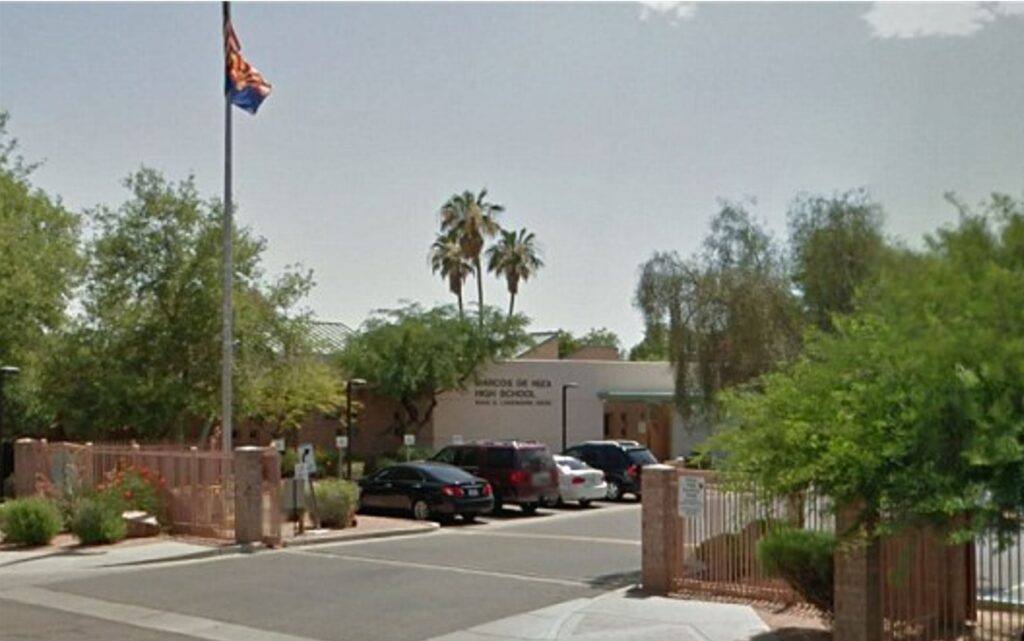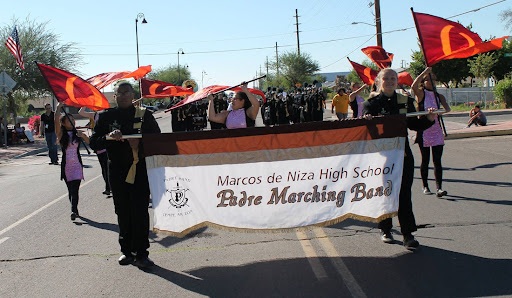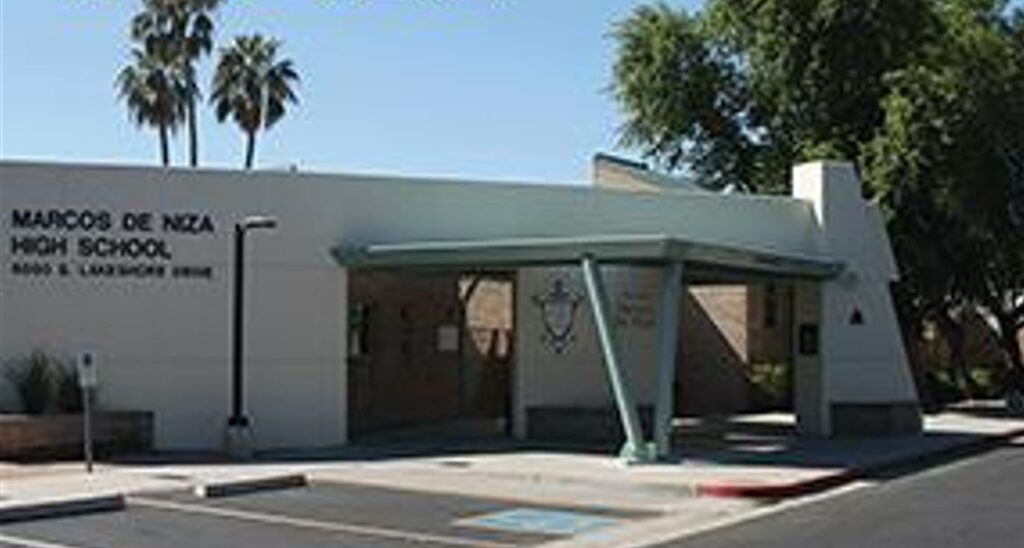
Heather Kiser’s students likely haven’t traveled to Cyprus, Botswana, South Korea, Ireland, Mexico, Egypt and South Africa. But they still can experience some of the culture of these nations in her classroom at Tempe’s Marcos de Niza High School.
A thirst for learning — and a desire to share it with young minds — is the reason Kiser, a teacher in the Tempe Union High School District for 15 years, became an educator.
She’s been at Marcos since 2015, and currently teaches AP and honors world history and world history/geography.
The Tempe resident also is the high school’s new gifted coordinator, and is co-creating the AP Scholars program, the first of its kind in the district. She and Rachael Clawson, a Marcos alumna and AP U.S. history teacher, started it in the fall of 2019 and then, well, COVID-19 hit.
Relegated to the back burner while the school dealt with a global pandemic, AP Scholars is back on now, Kiser said.
“A lot of kids here at Marcos are gifted, but they don’t know where or how to direct that,” she said. “Maybe they don’t have the home support or know how to make an appointment with their counselor.
“We want them to become aware that help is out there, to make goals to strive for.”
A young mind influenced by geography, reading
Growing up in Louisiana and Indiana, Kiser took frequent car trips with her parents to many states. (She says she has visited about 40 of them.) She recalls learning to read one day in first grade when, at the beginning of the school day, letters on the chalk board were a jumble.
 By day’s end, something had clicked, and Kiser was stringing words together.
By day’s end, something had clicked, and Kiser was stringing words together.
“I started reading the newspaper and would gravitate toward what was going on in the world,” she said. “When I first started, I didn’t understand it, but I kept reading, and it started to make sense.”
Kiser, who has a Master of Education in Curriculum and Instruction, with an emphasis in Social Studies, from ASU, has applied and been chosen for numerous national and international programs to travel and learn.
“That helps teaching not become boring for me,” said Kiser, who completed a Fulbright-Hays Fellowship in Cyprus in 2007, participated in a Phoenix Sister Cities’ teacher exchange to western Ireland in 2008, and has been to South Korea twice, among other trips. “It helps me be excited for students and stay on top of current events.”
Experienced educator goes extra mile for students
After being inspired at a district professional development workshop, Kiser and Clawson created AP Scholars for Marcos social studies students.
They felt more need to know about the availability and benefits of AP courses.
 “Marcos de Niza is 50 years old this year, and has always had honors and AP programs, but they used to be bigger than now,” Kiser said. “They haven’t grown strong and robust.”
“Marcos de Niza is 50 years old this year, and has always had honors and AP programs, but they used to be bigger than now,” Kiser said. “They haven’t grown strong and robust.”
Having a special program, into which teachers would recommend students, would give AP classes more panache and AP students more recognition, the teachers believe.
“We want kids to feel that, ‘This is my future, this is something I want to be a part of, this is something that can help me get into college, or into colleges and universities that I wouldn’t have thought about,’” Kiser said.
Before COVID-19, the teachers chose the first group and met a couple of times.
Since COVID-19, they plan to expand AP Scholars to include students in other AP disciplines, from art history and calculus to physics and Spanish.
“It would create a broader swath, a broader buy-in from more students across the different disciplines, and that’s what we want,” she said. “Not all students know other students taking AP classes, so that will bring more awareness across grade levels.
“And, kids will know you can be an AP Scholar if you’re a football player, a band student, someone in the fine arts.”
Kiser can see a time when upper-class AP Scholars encourage underclassmen to explore the program, when more tutoring is available for AP exams and when students feel less intimidated and isolated and more confident.
“AP work is very nuanced and highly demanding, but it’s also very rewarding,” Kiser said, pointing out benefits such as smaller class sizes and greater in-class discussions and field trips.
“We want to elevate these students, and we think that will help create a better cultural environment that is supportive of academics.”


